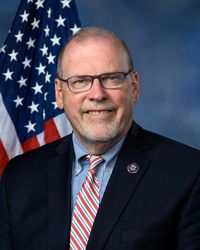0
Reclaiming Congress’s Constitutional Mandate in Trade Resolution
1/8/2025, 1:40 PM
Summary of Bill HCONRES 2
The bill seeks to address concerns about the current structure of the USTR, which is an executive branch agency responsible for negotiating trade agreements and representing the United States in international trade negotiations. Some critics argue that the USTR operates with too much autonomy and lacks sufficient oversight from Congress.
If passed, the Joint Ad Hoc Committee on Trade Responsibilities would be tasked with developing a plan to transfer the USTR's functions and responsibilities to the legislative branch. This could potentially involve creating a new agency or committee within Congress to handle trade negotiations and agreements. Overall, the goal of Bill 119 hconres 2 is to ensure that Congress has a more direct role in shaping US trade policy and overseeing trade negotiations. The bill emphasizes the importance of congressional oversight and accountability in the realm of international trade.
Congressional Summary of HCONRES 2
Reclaiming Congress’s Constitutional Mandate in Trade Resolution
This concurrent resolution establishes a process for transferring the functions and responsibilities of the Office of the Trade Representative (USTR) from the executive branch to the legislative branch. The concurrent resolution establishes the Joint Ad Hoc Committee on Trade Responsibilities and the Congressional Advisory Board on Trade Responsibilities to plan for and implement the transfer.
The Joint Ad Hoc Committee on Trade Responsibilities shall consist of 14 members of Congress appointed by majority and minority party leaders of the two chambers of Congress and meeting qualifications specified in the bill. The committee shall develop a plan under which the functions and responsibilities of the USTR shall be moved and provide its plan in a report to Congress within 16 months after the committee is appointed.
The bill also establishes a 21-member Congressional Advisory Board on Trade Responsibilities responsible for advising the committee in its development of the plan. Individuals meeting qualifications specified in the bill shall be appointed by the Trade Representative and majority and minority party leaders.
The concurrent resolution also provides that the USTR shall provide such information and assistance the committee and the advisory board may reasonably require to carry out their activities.
The transition of the USTR to the legislative branch occurs four years after the committee submits its report.
